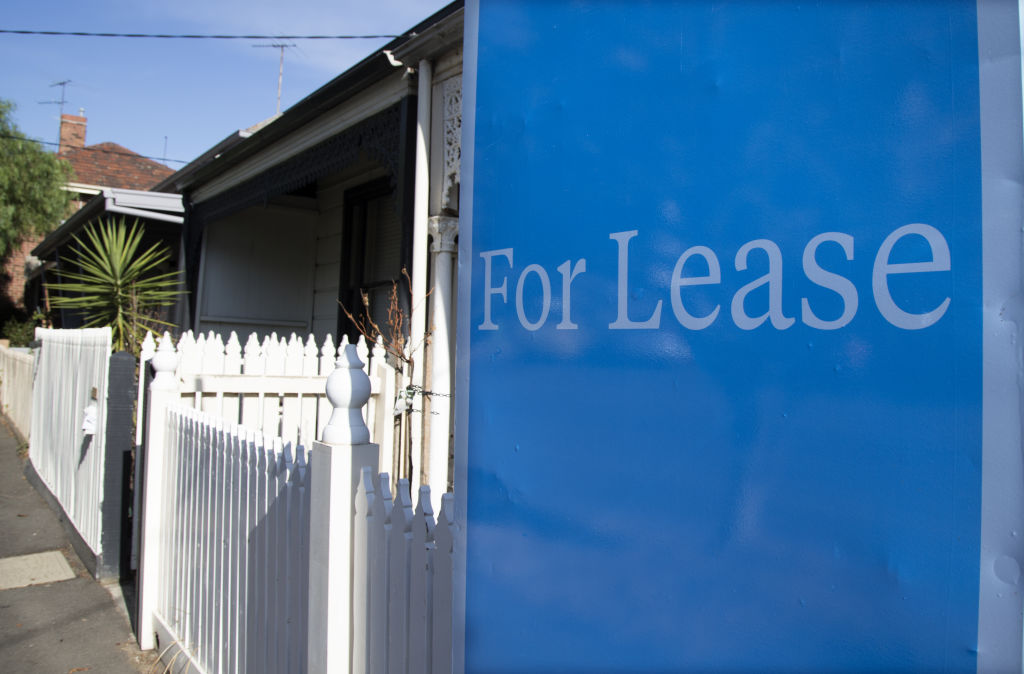The proptech company that will pay landlords their rent upfront

Landlords could get up to $60,000 of rental income upfront under a new prepayment service launched for cash-strapped investors.
Sydney-based proptech company FutureRent will pay residential landlords with tenanted properties up to 80 per cent of their rent upfront, capped at $60,000. Those with vacant properties can get up to four weeks’ rent, capped at $12,000, in advance while they find a tenant.
“A lot of investors are asset rich and cash poor,” said FutureRent co-founder and chief executive Godfrey Dinh.
“[Many landlords] have tied up so much money in their investment property, which can make it really difficult to pay for those other expenses.
“The biggest issue for people is generally liquidity, being able to access their money when and where they need.”
Landlords complete an online application, gain approval within 48 hours and have no restrictions on what they can use funds for, Mr Dinh says. They are paid rent upfront, then the company gets the funds back, and its fee, from tenant payments – via the real estate agent – over six to 12 months.
“The property manager gets the money back, they send 80 per cent of it [our] way and 20 per cent [the landlord’s] way. Effectively we collect via the property manager … the amount they’ve been prepaid plus the fixed fee.”

FutureRent charges two days’ rent for prepayments for vacant properties, while advanced payments for rented properties come with a 5.5 per cent fixed cost for repayments over six months, or 9.9 per cent over 12 months. That’s a fee of $5940 on an upfront payment of $60,000 repaid over a year.
Mr Dinh said there was no interest or additional charges if a tenant missed a payment, adding that, unlike credit cards and personal loans, FutureRent had no impact on credit scores.
Debt consolidation, paying for private school fees and property repairs are among the top costs clients have used prepayments for since the company launched this year, Mr Dinh says. Clients across Sydney, Melbourne, Brisbane and Adelaide have pocketed an average of $22,000 upfront.
“A lot of expenses that people have are lumpy, whether it’s paying for school fees or medical expenses or buying a car … but rent generally just sort of trickles in over time,” Mr Dinh said. “We believe if you have an investment property and you have a tenant, why shouldn’t you be able to have some more flexibility [with your funds]?”

Investors Abirami and Prabaharan Satchi are among those who have opted in, getting more than $55,000 of rent in advance against three rental properties that they’ve used to pay for school fees, relocation costs and property repairs.
Having had difficulty topping up their exisiting home loan, and not wanting to take out a personal loan, they learnt about FutureRent and applied to get upfront payments on one property in April, another in July and a third last month.
“It was a big help,” said Mr Satchi.”We had to do a major repair in one of our properties, renovate the bathroom, as well as painting. These things unnecessarily happen and you need the extra amount when you do.”
“It’s a great tool, if you can manage it,” said Mrs Satchi. “We get the money, our money, upfront. [But that means] what we need to do is manage our future cash flow and expenses.”
“It is a sizeable amount and you need to be cautious about it,” she added.
“If [people] are getting the money and going on overseas trips, they’ll have all the expenses still there when they get back and won’t have the cash to service it. It has to be a worthwhile decision to do it, it’s not for everyone.”

Steve Mickenbecker, Canstar’s group executive of financial services, said it sounded like an interesting innovation, but warned landlords to plan out their cash flow before jumping in.
“The main risk is that you are, in a way, double borrowing against a property if you already have an investment loan,” he said. “You’ve got to be sure that your other sources of income are adequate to pay your loan.”
Landlords also have to be aware of the risk of rental prices falling, a tenant defaulting or a property becoming vacant.
“If any of those occur you might find the rental return is not enough to repay FutureRent and [the mortgage],” he said. “You’re effectively spending your income before you’ve got it and if something happens to income stream, you could be pretty stressed.”
Landlords should always do their research, Mr Mickenbecker said. While the fixed 5.5 and 9.9 per cent fees were similar to those offered for personal loans, it was “quite high” compared to the rate they could potentially access by increasing a mortgage.
“We are more expensive than a regular home loan and we don’t shy away from that … but we make things a hell of a lot easier for people,” Mr Dinh said. “We believe if you’ve got the rental income coming in, why shouldn’t you be able to accelerate that? As a result we don’t put people through all the rigmarole and the hoops.”
We thought you might like
States
Capital Cities
Capital Cities - Rentals
Popular Areas
Allhomes
More









